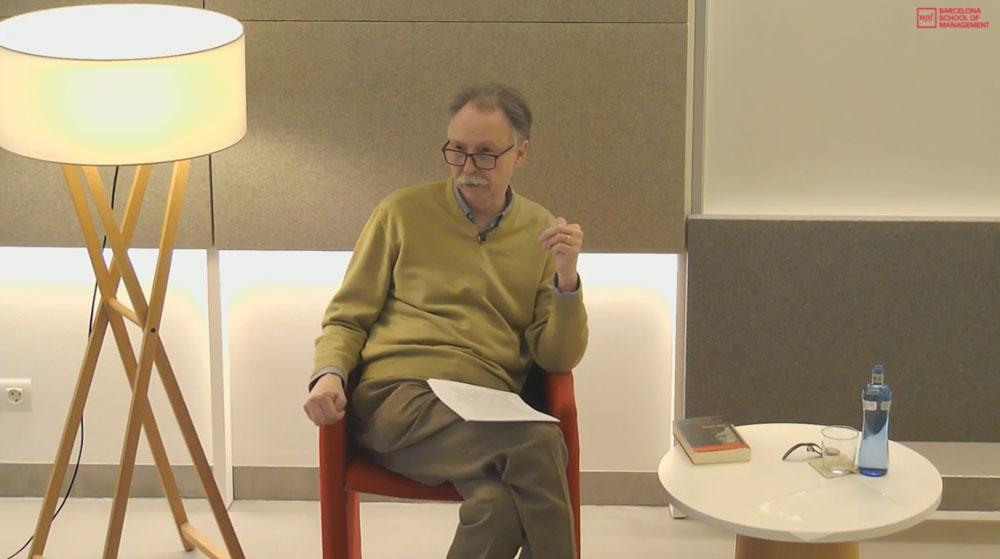"«The World of Yesterday» is the conversion of crying into writing"
5 Mayo - 2021There are two elements in "The World of Yesterday" that make it particular and timeless. On the one hand, the despair and pain contained by the exile and the disappearance of a world. On the other hand, its conversion of crying into writing. This was the opinion of literary translator Adan Kovacsics, lecturer at the webinar "The World of Yesterday: Stefan Zweig and Europe in the early 20th century" and expert on the works of Austrian and Hungarian authors such as Stefan Zweig, Karl Kraus and Arthur Schnitzler, among others.
"The World of Yesterday: Memoirs of an European" (1941) is Zweig's masterpiece, which he wrote in "times of hardship and persecution"."This is an autobiographical book in which, however, Zweig's private life hardly appears," said Kovacsics, who described the book as a "gallery of personalities". "There is not a page in which musicians, artists or intellectuals that Zweig knew do not appear," he admitted.

Although the reading is a "permanent exaltation of art", the real protagonist is rather a period. "He, so adept at writing biographies, seems to have wanted to write the biography of a certain period in Europe," the translator said, referring to the interwar period.
What was the world yesterday?
When Zweig talks about the world of yesterday, he is talking about the world before the First World War."What defined that era was cosmopolitanism and the defense of the supranational, something that also characterized his family," explained Kovacsics, who insisted on the author's "permanent effort to recall and justify a life."
So expert in biographies, he seems to have wanted to write the biography of a certain period in Europe
But, with 2021 glasses, Kovacsics has insisted that Zweig's vision responds to a "mythical Habsburg pattern" with a tendency to "sweeten and idealize" the pre-Great War period.The political scientist Hannah Arendt disagreed with this and described " The World of Yesterday" as "anything but the world of yesterday".
Be that as it may, and despite the criticism, the Zweig expert has argued that what the world of yesterday rescues is the "creative effervescence" of the time before the war and the characters such as Sigmund Freud or Franz Kafka who "reflected the fragile, brittle and shaky basis of that world of yesterday".
